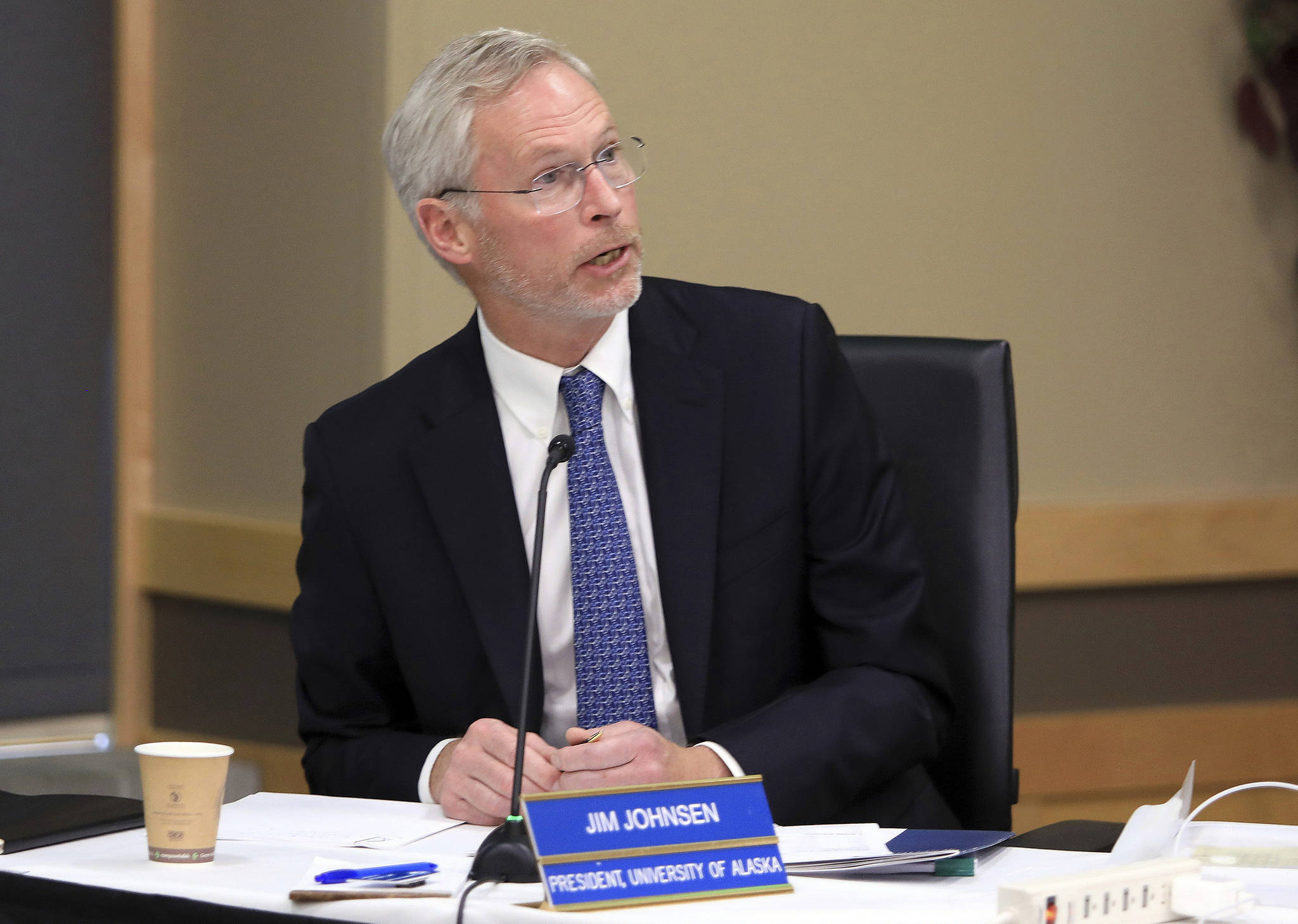By MARK THIESSEN
Associated Press
ANCHORAGE — Jim Johnsen, the embattled University of Alaska president whose term has been marked by no-confidence votes from the faculty amid deep budget cuts, has resigned, the university announced Monday.
The change in leadership was a mutual decision made after Johnsen consulted with the Board of Regents, according to a statement. His biography was immediately removed from the university’s web page.
A university vice president, Michelle Rizk, will immediately become acting president and will serve until an interim president is named, no later than July 15. The university said Johnsen would be available to help with the transition through July 1.
“While the board understands that a change in leadership can be unsettling, it is confident that this decision, though difficult, is the correct one for the university,” said Sheri Buretta, the chair of the Board of Regents.
Johnsen’s resignation announcement came a week after the faculty union demanded he quit and less than two weeks after he withdrew his candidacy to become the president of the University of Wisconsin even though he was the lone finalist.
Johnsen in 2015 became president of the Alaska system, which includes about 30,000 students at three universities and 13 community campuses. But his tenure was mired by run-ins with faculty and the fallout of Alaska’s state budget problems.
Republican Gov. Mike Dunleavy, who faces a recall effort, had proposed an unprecedented $135 million cut to state funding for the system last year, about a 41% reduction.
But an agreement between the university system and Dunleavy in August sought to lessen the blow. They agreed to a smaller, $70 million cut spread over three years, including a $25 million cut in the current academic year.
Earlier this month, the Board of Regents voted to cut or reduce more than 40 academic programs to help meet the cuts.
The faculty union’s petition calling for him to resign said he “failed in all areas that matter to the academic mission.”
“It has been a real challenge leading the university over the last five years, but we made a lot of progress, too. Looking forward, there is no institution more important for creating opportunities for Alaskans than the university,” Johnsen said in a statement.
He would not be available for an interview, university spokeswoman Roberta Graham said in an email to The Associated Press.
“Jim Johnsen served the University of Alaska under historically challenging circumstances,” House Speaks Bryce Edgmon of Dillingham said. “He was saddled with the impossible task of managing a university system facing a 44 percent cut in state funding. I thank Jim for his service to the University and state of Alaska.”
Buretta said it’s imperative that everyone recognizes the state and university’s current fiscal situation will require significant change.
“To thrive, UA must come together to address our significant challenges — working to transform, reversing declining enrollment, and adapting to declining state support,” Buretta said. “The board also asks our community to move forward together and to work with the Board and university leadership as we address these challenges.”
Johnsen previously received no-confidence votes from the university faculty in 2017 and 2019 over plans to consolidate programs and combine the three university system into a single accredited institute to absorb budget cuts.
Other University of Wisconsin presidential candidates dropped out over concerns of being publicly named. Faculty, staff and students complained they had no representative on the search committee, When he withdrew, Johnsen said his calling remained in Alaska. He also signaled that Wisconsin’s search process was flawed.
The University of Alaska faculty petition calling for his resignation was issued after he withdrew from the Wisconsin job. It claimed he sought to advance his own career instead of leading the university.
This is an Associated Press report.

